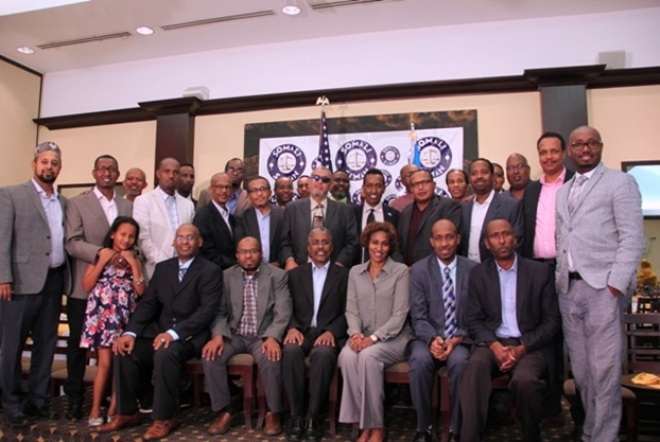Heikal I. Kenneded
Thursday September 15, 2016

On September 3rd, theWashington DC Metropolitan AreaSomali community wholeheartedly hosted a majorconvention of the Somali Siman movement that’s lately gaining moment across the Somali diaspora in Northern America. This movement that’s led by a group of Somali scholars who are committed bringing to the fore the core issues that fueled the civil war and the perpetual failure of a lasting peace. In an attempt to tackle the profound inequities and injustice among the Somali communities, these scholars are determined to speaking truth to power by discussing taboo issues that held back our society in the dark ages. It is a powerful nonviolent challenge to injustice and unrestrained authoritarian forces, often perpetuated by the so called “dominant” clans against minority clans, when it comes to power and resource sharing means.
There does seem to be at least one common denominator in regards to inequality or injustice in Somalia – and that’s tribalism. Thus, the Somali Simanmovement is committed to comforting the afflicted, while afflicting the contented with the power of the truth: to work for justice and equality, or else we all go down, as one people.
Close to a quarter of century after the collapse of the Somali nation state, most Somalis are divided what exactly ails the nation and how peace and prosperity could be restored, once again. Nonetheless, what’s missing is the courage to stand up against egregious injustices, which has been replaced by pusillanimity to throw conviction out the window for personal or political expediency.
There has neither been egalitarianism “instant” in our country’s history, norinstances when people who recognized that harsh reality and refused to accept it anymore and dared tostart a social movement to force the “powerful” to see themselves for whom exactly they are: oppressors. In that sense, the Somali Siman movement represents a groundbreaking campaign to be rallied around wherever Somalis are – in the country or in the diaspora.
Unless we’re honest about our society’s beginnings, both good and bad and therefore see our history as a series of flaws between the different clans, and the oppressed. We must embrace our Islamic religion, for all of its justice, equality and respect of the minority. We must level with ourselves about the notion that equality and justicehave to be restored before we delude ourselves about nation building. We must do this out of honesty and show deference for the millions of our brothers and sisters who were neither counted, nor protected by justice from the beginning. We must practice reflecting ourselves as part of a long arch of society who has revised the inequality of our history in order to amend our notions of everyone counts.
Since the realms of power lie on those who decide, we must acknowledge how the “powerful” have operated in our country with impunity and the price the powerless have paid. As such, those of us who’ve been spared from this corrupting power must dare to concede what it has done: witness of massive economic inequities, warlordism, piracy, radical extremism and violent competition for resources that’s manifested ongoing drought and to the increasing of famine throughout the country.In effect, if we are not one of those people who do not commit these egregious sins; we must challenge the people who carry out such injustices. If we don’t, then we are nothing more than their accomplices and will go down in history, as such.
Because the Somali problem is much deeper than mere ragtag terrorist groups blowing themselves up,or unhelpful foreign interventionist elements, but rather internal problems that go to the core of our society’s conscience that needs to be dealt with heads on. We need to recognize the consequence of centuries of clan rivalry that was predicated on a throwaway class of people who would be passed over so that the others could thrive and feel entitled to more resources and power than the rest.
We must recognize that equality is not an institution; nonetheless it is a practice of radical fairness, moral, and collaboration among different communities or societies, if done right, fundamentally impacts our institutions. In this sense, equality has never been invented, but rather it has been born whenever people collectively have made a choiceand stood up for a belief against the wishes of the powerful and corrupt.
Finally, Somalis as a collective ethnicity face an existential threat if its people do not adequately address the inequality and injustice that permeate across its society. This is, however, an impossible task for the weak regional state governments, and as it is of equal importance to every segment of its society, extensive involvement is required that goes beyond lip service and empty speeches but rather a deep awakening of the conscience at individual level across every segment of our society.